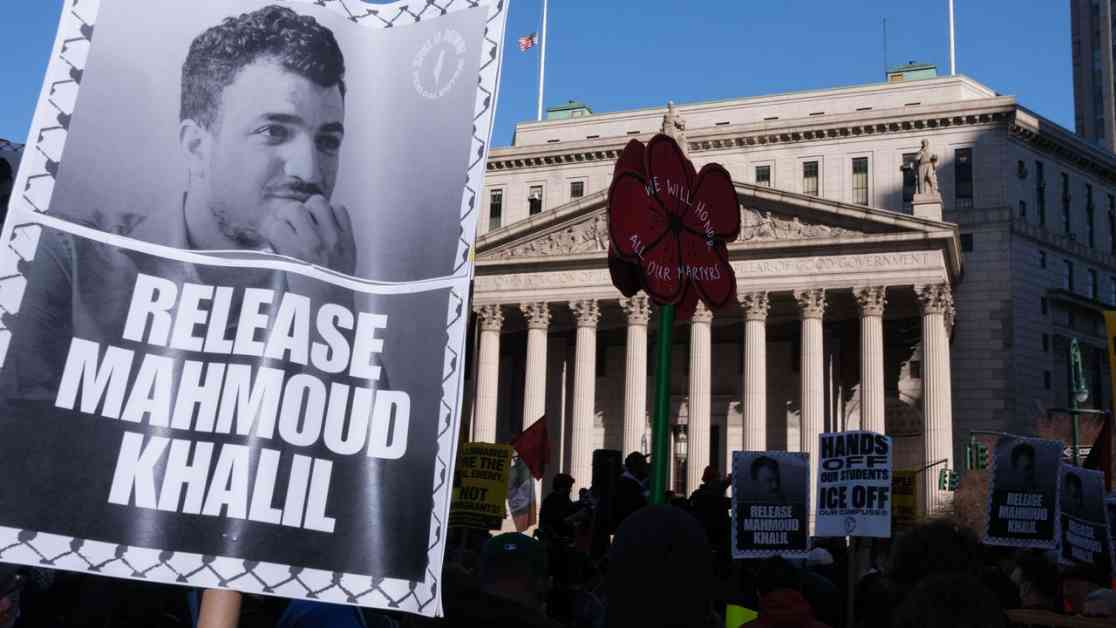Mahmoud Khalil, a young man of Syrian birth and Palestinian descent, found himself in the crosshairs of U.S. immigration authorities following his involvement in protests against Israel’s actions in Gaza. Despite being a legal permanent resident with a master’s degree from Columbia University, Khalil was arrested and faces deportation based on the revocation of his green card. The situation has sparked debate on the legal basis for his arrest and the implications for his constitutional rights.
The Controversial Arrest and Legal Basis
The arrest of Mahmoud Khalil by Immigration and Customs Enforcement (ICE) has raised questions about the extent of the agency’s authority and the legal grounds for deportation. The government has cited a rarely used provision in the Immigration and Nationality Act that allows for the removal of a non-citizen if their presence or activities pose potential adverse foreign policy consequences. This provision has been the subject of legal challenges in the past, with concerns raised about its constitutionality.
Expert Insights and Legal Analysis
Lindsay Nash, an associate professor at Cardozo School of Law and co-director of the Kathryn O. Greenberg Immigration Justice Clinic, shed light on the legal complexities surrounding Khalil’s case. Nash emphasized the constitutional rights afforded to all individuals in the U.S., including lawful permanent residents, and the need for due process in removal proceedings. She highlighted the challenges posed by vague and potentially unconstitutional grounds for deportation, such as those being invoked in Khalil’s case.
The Role of Free Speech and Selective Enforcement
The arrest of Khalil has drawn attention to the intersection of free speech rights and immigration enforcement. Nash discussed the potential implications of targeting individuals for their political speech or activism, particularly in cases where the government’s actions may be seen as stifling dissent. She raised concerns about the broader impact of using deportation as a tool to silence critics and the need for judicial oversight to prevent abuses of power.
Looking Ahead: Implications and Concerns
As the legal battle over Khalil’s deportation unfolds, questions remain about the broader implications of his case. Nash expressed concerns about the precedent that could be set if the government is allowed to target individuals based on vague or politically motivated grounds. She emphasized the importance of transparency and accountability in immigration enforcement, particularly for vulnerable populations who may not have access to legal representation.
In conclusion, the case of Mahmoud Khalil highlights the complex interplay between immigration law, constitutional rights, and political speech. As the legal proceedings progress, the outcome will not only impact Khalil’s future but also set a precedent for how the government can exercise its authority in cases of deportation. It serves as a reminder of the need for robust legal protections and oversight to safeguard the rights of all individuals, regardless of their immigration status.












